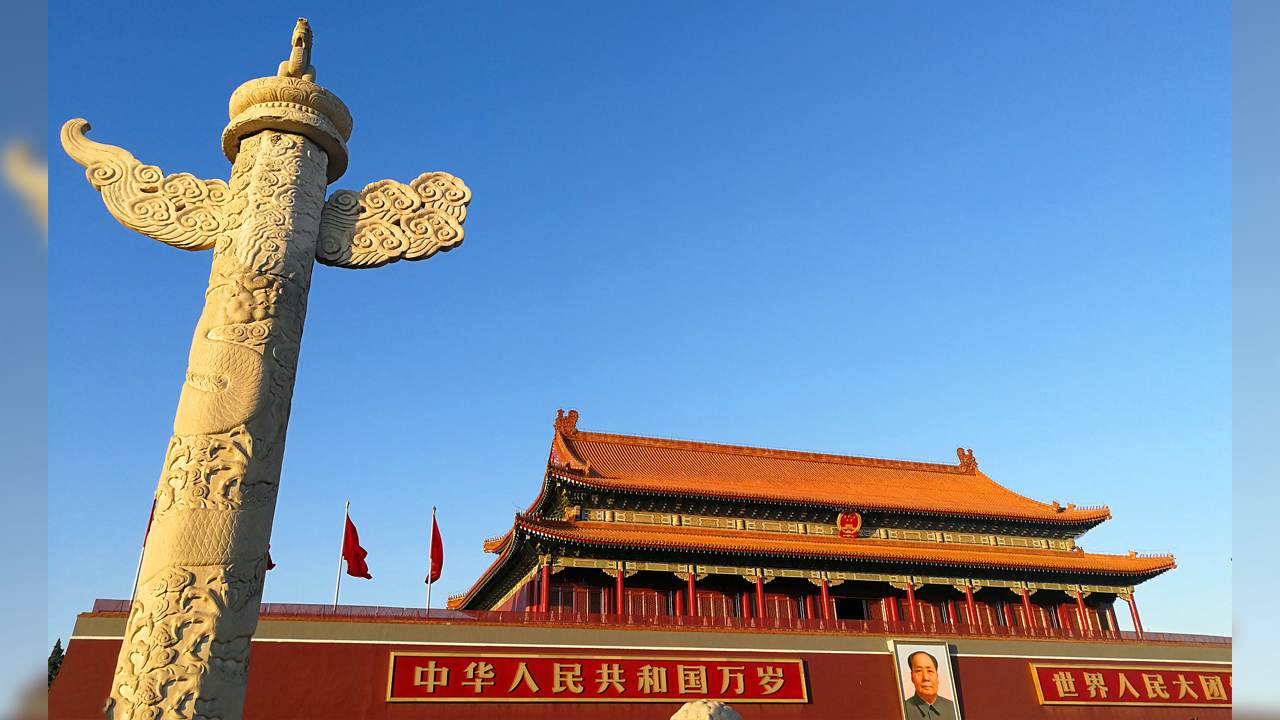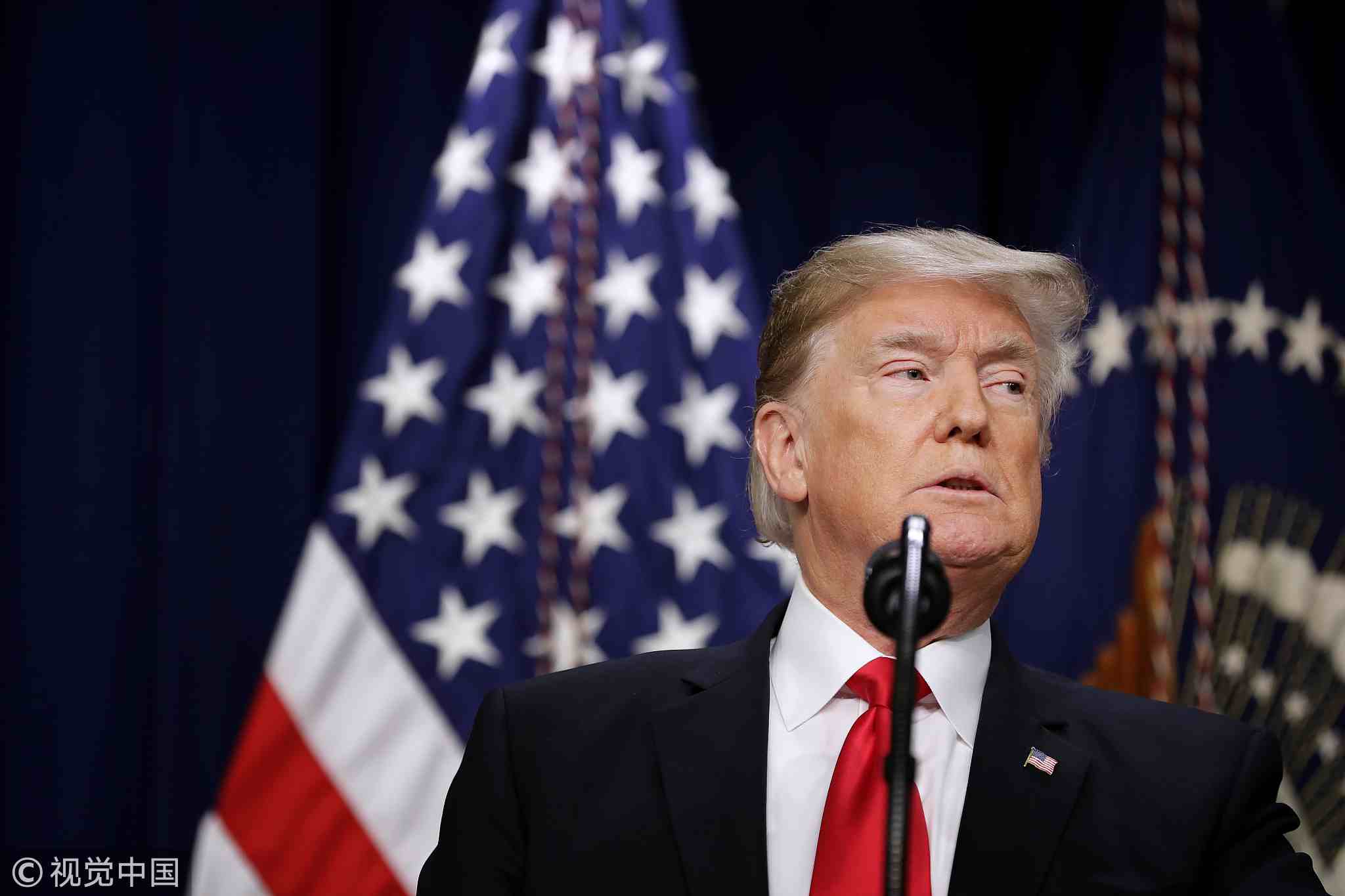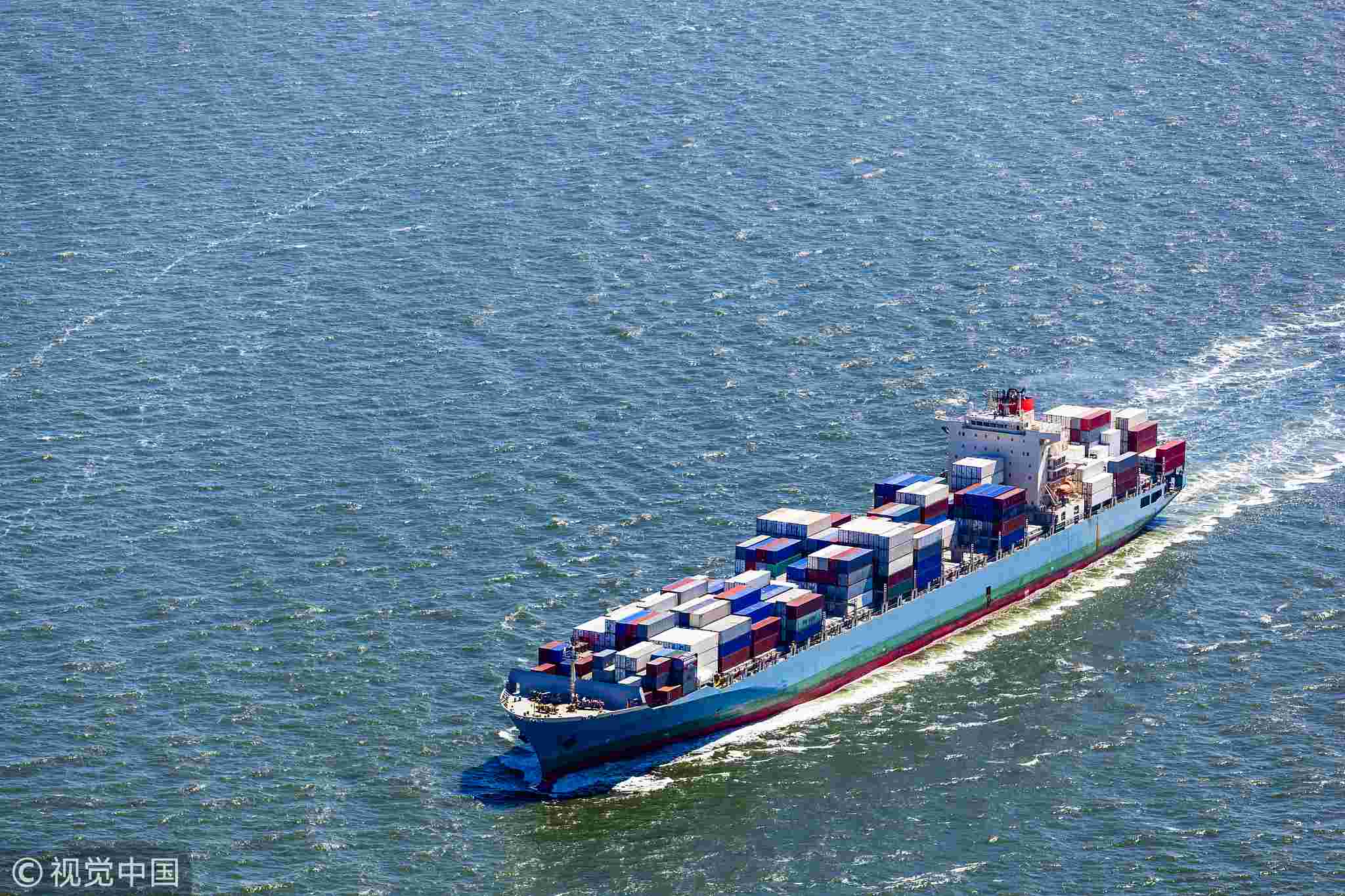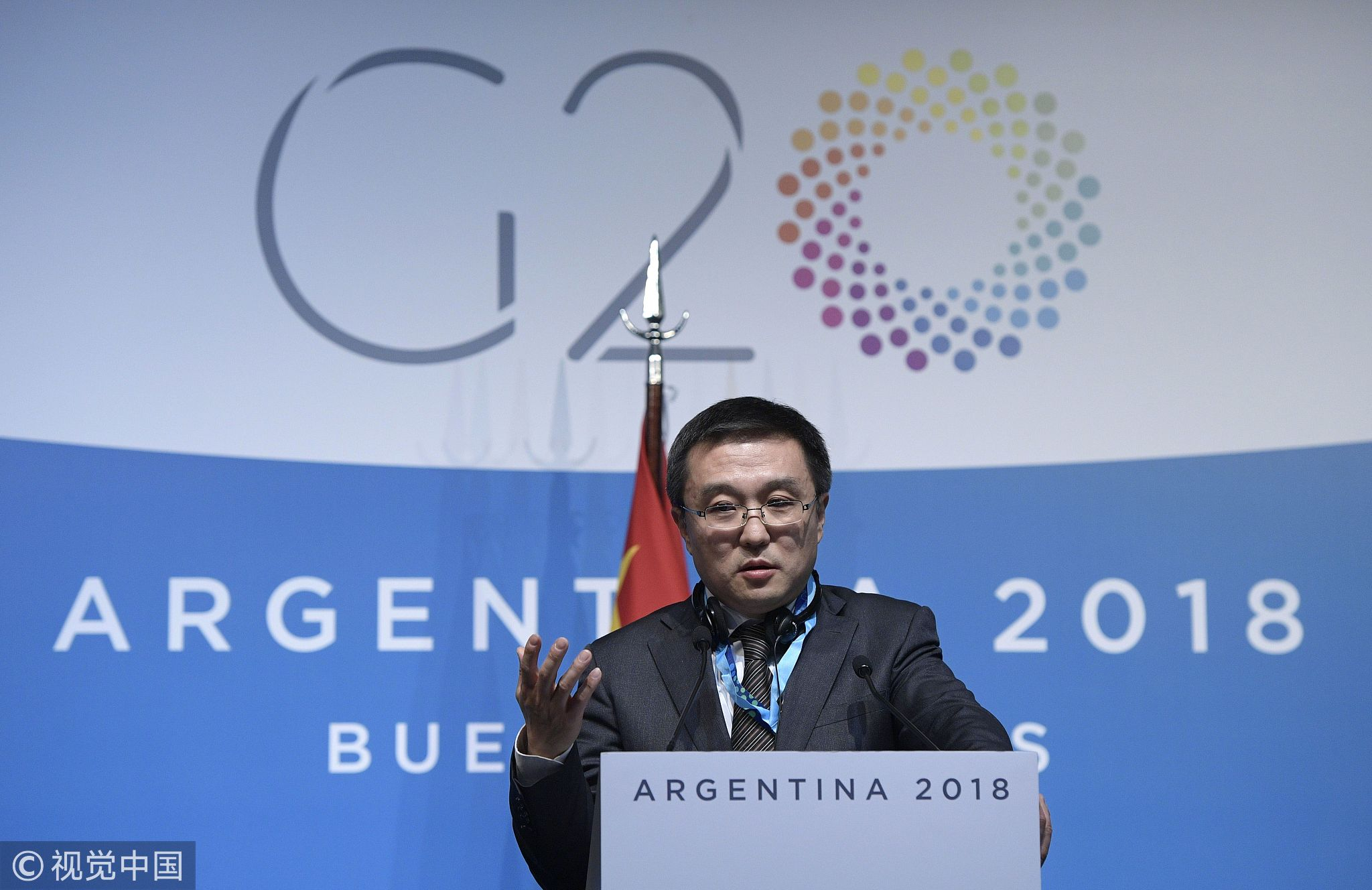
Opinions
08:30, 23-Dec-2018
Opinion: China should roll with the punch
Updated
07:23, 26-Dec-2018
Zhang Jianping

Editor's note: Zhang Jianping is director of the Regional Economic Research Center of the Chinese Academy of International Trade and Economic Cooperation of the Ministry of Commerce. The article reflects the author's views, and not necessarily those of CGTN.
The Central Economic Work Conference just held pointed out that the current external environment is complex and grim, and the economy is facing downward pressure. In terms of the external drivers of China's economic growth, as the world's largest manufacturing powerhouse and largest trading country, China is greatly affected by the changes in the global market.
Around the world, we have seen a rise in the anti-globalization movement. The world's largest economy, which is also China's largest trading partner, has violated the most-favored-nation treatment principle of the World Trade Organization under the doctrine of “American First.”
Three rounds of extra tariffs have been slammed by the U.S. on 250 billion dollars of Chinese products, while additional tariffs have also been imposed on enterprises in the EU, North America, Japan and South Korea, resulting in the adjustment of cooperation throughout the global supply chain.
The uncertainties and unpredictability of global trade and economic growth have become a major concern in the global market. Europe has also shown signs of weak growth under the pressure of the refugee crisis and Brexit.

U.S. President Donald Trump delivers remarks before signing the Agriculture Improvement Act during a ceremony in the South Court Auditorium of the Eisenhower Executive Office Building in Washington, DC, December 20, 2018. /VCG Photo
U.S. President Donald Trump delivers remarks before signing the Agriculture Improvement Act during a ceremony in the South Court Auditorium of the Eisenhower Executive Office Building in Washington, DC, December 20, 2018. /VCG Photo
China is now in a painful period of economic restructuring, so the development of the global economy in 2019 will face significant challenges.
From China's point of view, globalization is an objective law independent of man's will and is the trend of global development. The transformation and upgrade of China's growth model and its economic restructuring must be completed with the help of globalization, because these challenges were brought by globalization in the first place.
Therefore, the conference pointed out in particular, “China will participate in the reform of the global economic governance system and translate the pressure into a driver to accelerate high-quality economic development.”
At present, the reform of the WTO has become an important global issue, and the improvement of the global governance system on trade, finance and investment is also at a new critical moment.
China will actively participate in the negotiation of global and regional governance rules in order to build an open, modern economic system in the country.

Global trade. /VCG Photo
Global trade. /VCG Photo
The Chinese government has proposed that there will be a shift from the opening-up focused on commodity and factor flows in the past 40 years to an institution-oriented opening-up.
The opening-up featuring commodity and factor flows is mainly about the import and export of products, technology, capital and talents as a way to integrate with the world economy under the framework of the existing international economic and trade rules.
From 2019, China will move towards institutional opening-up, which means that China will actively participate in the design of multilateral trading system rules, such as the reform of WTO rules and the establishment of global investment governance rules.
At the G20 Summit, China, along with other major economies, has already concluded the nine guiding principles for international investment. China needs to formulate more detailed and relevant rules and frameworks in the future.
Of course, China also needs to play an active role in some major multilateral negotiation processes, including negotiations over environmental product lists, information product and government procurement. During these negotiations, China's rules and the global rules should become aligned.

Special Envoy on G20 Affairs of China's Foreign Ministry, Wang Xiaolong, delivers a press conference, on the second day of the G20 Leader's Summit, in Buenos Aires, December 01, 2018. /VCG Photo
Special Envoy on G20 Affairs of China's Foreign Ministry, Wang Xiaolong, delivers a press conference, on the second day of the G20 Leader's Summit, in Buenos Aires, December 01, 2018. /VCG Photo
In the process of regional economic cooperation and integration, China has proposed to build a network of free trade agreements in line with the “Belt and Road” initiative. In this process, China should actively lead the formulation of relevant rules.
In the pilot free trade zones, there is proactive opening-up, including tariff cuts and expanded market access for investment.
Aimed at opening wider to the world and connecting with the global economic and trade rules, China will work hard to establish fair and open market rules and a law-based business environment to promote positive incentives and healthy competition and to develop more high-quality enterprises.
China is committed to creating a level playing field and encouraging the fast growth of small and medium-sized enterprises. The country will also speed up the development of a unified, open and competitive modern market system.
Across-the-board tax relief and fee reduction are a necessary policy to stimulate private sector investment and strengthen the growth momentum.
(If you want to contribute and have specific expertise, contact us at opinions@cgtn.com.)

SITEMAP
Copyright © 2018 CGTN. Beijing ICP prepared NO.16065310-3
Copyright © 2018 CGTN. Beijing ICP prepared NO.16065310-3